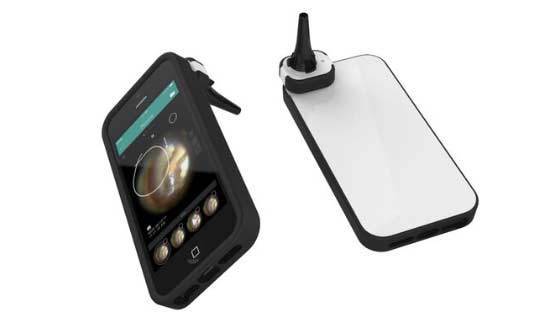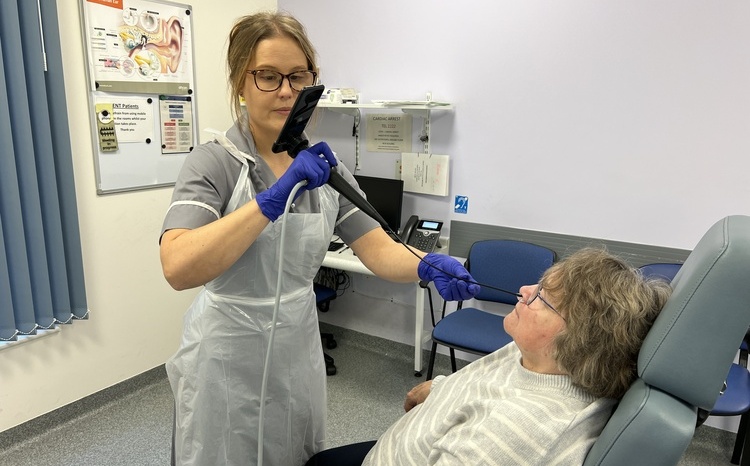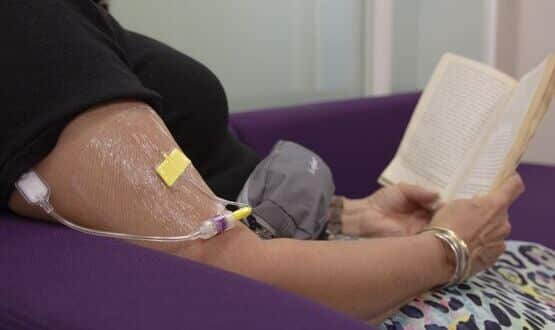Medway trials smartphone-connected hearing device

A trial of an iPhone-connected medical device to detect hearing problems will start in Medway this month.
Two hundred patients are expected to take part in the trial of the Cupris Health Otoscope, which will last six months.
The technology will be used to capture clinical images and videos of the eardrum, which can be sent to specialists for assessment, thereby reducing unnecessary hospital appointments.
The trial involves patients in three settings; hospital; care homes; and GP surgeries. Funded by the Small Business Research Initiative, it will look at user acceptability and involve a clinical evaluation of the device itself.
Professor Rahul Kanegaonkar, consultant ENT surgeon at Medway NHS Foundation Trust, is leading the clinical trial at Medway Maritime Hospital.
Patients at his clinic will be examined by a research nurse using the Cupris otoscope. The nurse will also ask a series of questions about symptoms and the patient’s medical history as well as conduct a hearing test using a Cupris-developed audiometer on the iPhone.
The patient will then have the current standard treatment, which involves a hearing test conducted by an audiologist and being seen by one of the doctors in the ENT clinic, who will decide whether an intervention is required.
“With this study we are having the patients assessed by a research nurse before they enter the standard clinical pathway," Kanegaonkar explained.
“The study will allow us to compare outcomes of just using the Cupris image and questions and hearing test with standard clinical care. We should be able to identify those people that didn’t need to be referred to the hospital so, if successful, it could prevent patients from having to see the consultant.”
He added that it could speed up the treatment of patients who do need to attend the ENT clinic.
The device will also be used by GPs for remote assessments, with two practices already signed up for the trial. They can email an ENT clinician the otoscope images with patient data and the hearing test result, providing them with enough information to decide whether the patient needs to be referred to the hospital.
Kanegaonkar said the clinician could give some recommendations regarding management if the patient does not need to be referred.
“The patient wouldn’t need to come to hospital at all so there’s a cost saving for the hospital,” he explained.
A research nurse and doctor will also visit care homes where they will use the device to assess people with learning disabilities for ear problems.
All three care settings will start using the device “almost simultaneously”, starting with ten devices and building up to around 20. Over a six-month trial they aim to assess 200 patients.
Cupris Health chief executive Mike Pallett said the otoscope currently only works with the Apple iPhone, but the ultimate aim is that health staff will be able to use it with their own devices.




